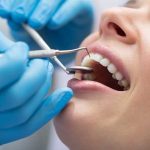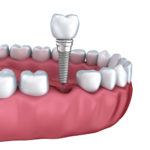Top Reasons Why Your Bottom Teeth Hurt: Explained by Dental Experts

If you’ve ever experienced pain or discomfort in your bottom teeth, you know how frustrating and distracting it can be. The pain can range from a dull ache to a sharp, shooting sensation, and it can make it difficult to eat, speak or even concentrate on your daily activities. While the cause of the pain may vary, it’s important to see a dental expert to determine the underlying issue and receive appropriate treatment. There are several reasons why your bottom teeth may be hurting, and each one requires a different approach to resolve the problem. Dental experts are trained to identify the source of the pain and develop a personalized treatment plan to alleviate your discomfort. In this article, we’ll explore some of the most common reasons why your bottom teeth may hurt and explain how dental professionals can help you find relief.
Tooth Decay and Cavities

Tooth decay and cavities are some of the most common dental problems faced by people of all ages. Tooth decay, also known as dental caries, occurs when the bacteria in your mouth produce acids that dissolve the tooth enamel. If left untreated, the decay can penetrate deeper into the tooth, causing pain and discomfort. Cavities, on the other hand, are small holes that form in the teeth due to tooth decay. They can cause sensitivity, pain while eating, and even infections. Tooth decay and cavities can be caused by a variety of factors, including poor oral hygiene, a diet high in sugary and acidic foods, and certain medical conditions. Preventing tooth decay and cavities requires regular brushing and flossing, as well as avoiding sugary and acidic foods. If you experience tooth pain or sensitivity, it is important to visit a dentist as soon as possible to prevent the problem from getting worse. Your dentist may recommend treatments such as fillings, crowns, or root canals to address the issue and restore the health of your teeth.
Tooth decay and cavities are caused by a combination of factors that include bacteria, sugar, and acid. Bacteria in the mouth feed on the sugars found in food and drinks and produce acid as a byproduct. This acid erodes the tooth’s protective enamel, creating cavities or holes in the tooth. If left untreated, tooth decay can lead to pain, infection, and even tooth loss. Good oral hygiene, such as brushing and flossing regularly, and reducing sugar intake can help prevent tooth decay and cavities. Dental professionals recommend regular check-ups and cleanings to detect and treat tooth decay early.
There are several reasons why you may experience pain in your bottom teeth, and one of them is related to dental decay. When a cavity forms in one of your bottom teeth, it can cause sharp and intense pain that worsens over time. Another common reason for tooth pain is gum disease, which occurs when bacteria accumulate in the gums and cause inflammation. This inflammation can spread to the surrounding teeth and cause pain or sensitivity. Additionally, tooth grinding and clenching can also contribute to bottom tooth pain, as excessive pressure can wear down the enamel and cause sensitivity or pain. Overall, it is important to see a dental expert if you are experiencing tooth pain, as they can identify the underlying cause and provide appropriate treatment to alleviate your discomfort.
Prevention and treatment options for bottom teeth pain depend on the underlying cause. Good oral hygiene practices such as brushing and flossing regularly, avoiding sugary and acidic foods, and scheduling routine dental check-ups can help prevent dental issues that cause pain. For conditions such as gum disease or cavities, professional dental treatments such as deep cleaning, fillings, or root canals may be necessary. In some cases, orthodontic treatment may be recommended to address misaligned teeth or jaw issues. Pain management options such as over-the-counter pain relievers or prescription medications may also be used to alleviate discomfort. It is important to consult with a dental professional to determine the best course of action for your specific situation.
Gum Disease
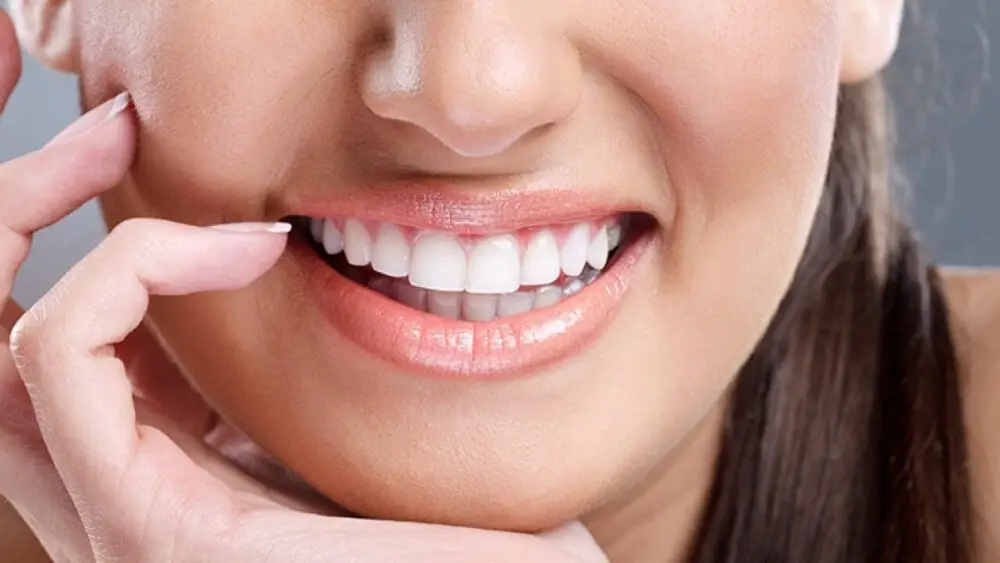
Gum disease, also known as periodontal disease, is a common dental problem that affects millions of people worldwide. It is caused by the buildup of plaque and bacteria on the teeth and gums, which can lead to inflammation, swelling, and bleeding. Gum disease can also cause bad breath, receding gums, and loose teeth, and if left untreated, it can eventually lead to tooth loss. There are several factors that can increase the risk of developing gum disease, including poor oral hygiene, smoking, diabetes, and hormonal changes. One of the most effective ways to prevent gum disease is to maintain good oral hygiene habits, such as brushing and flossing regularly and visiting the dentist for regular check-ups and cleanings. If you notice any signs of gum disease, such as bleeding gums, bad breath, or loose teeth, it is important to seek treatment as soon as possible to prevent further damage. Treatment options for gum disease may include scaling and root planing, antibiotics, or surgery, depending on the severity of the condition. With proper care and treatment, however, gum disease can be managed and even reversed, allowing you to maintain a healthy and beautiful smile for years to come.
Gum disease, also known as periodontal disease, is a condition that affects the soft tissues and bone supporting the teeth. It is caused by the buildup of plaque, a sticky film of bacteria that forms on teeth and gums. If left untreated, gum disease can lead to tooth loss and other serious health problems. Symptoms of gum disease may include red, swollen, or bleeding gums, persistent bad breath, and loose or shifting teeth. Prevention and early intervention are key in managing gum disease, and regular dental check-ups and cleanings can help keep it under control.
The pain in bottom teeth can be caused by a variety of factors. One of the most common causes is tooth decay, which can erode the enamel and expose the sensitive underlying layers. Another culprit is gum disease, which can cause the gums to recede and expose the sensitive roots of the teeth. Bruxism, or teeth grinding, can also lead to pain in the bottom teeth due to excessive pressure on the teeth and jaw. Additionally, a misaligned bite or dental trauma can cause pain in the bottom teeth. It is important to consult a dental professional to accurately diagnose and treat the underlying cause of the pain.
Prevention and treatment options are essential to alleviate the pain and discomfort associated with bottom teeth. To prevent tooth pain, experts recommend maintaining proper oral hygiene by brushing twice a day, flossing daily, and visiting the dentist regularly. Additionally, avoiding foods and drinks that are high in sugar and acidic content can help prevent tooth decay and sensitivity. In case of tooth pain, treatment options vary depending on the cause of the pain. Your dentist may recommend a filling, root canal, or extraction to treat dental decay, infection, or damage. Pain relievers and antibiotics may also be prescribed to alleviate pain and inflammation. Overall, practicing good oral hygiene and seeking timely treatment can help prevent and treat bottom teeth pain effectively.
Tooth Trauma or Injury

Tooth trauma or injury is a common cause of tooth pain, especially in the lower teeth. This can occur due to various reasons, including accidents, sports injuries, or biting down on something hard. When a tooth is traumatized, it can become loose or even knocked out of its socket. In some cases, the tooth may also fracture, leading to severe pain and discomfort. If you have experienced tooth trauma or injury, it is important to seek dental care immediately. Your dentist can assess the extent of the damage and provide appropriate treatment, which may include splinting, root canal therapy, or even tooth extraction. In some cases, a damaged tooth may require a dental crown or bridge to restore its function and appearance. With prompt and proper care, most cases of tooth trauma or injury can be successfully treated, allowing you to regain your oral health and function.
Tooth trauma or injury occurs when a tooth experiences physical damage due to external factors such as accidents, falls, or sports injuries. This can cause a range of dental problems, from minor chips and cracks to more severe fractures, dislodgement, or complete loss of the tooth. Tooth trauma can also damage the surrounding tissues, such as the gums, nerves, or blood vessels, leading to pain, swelling, bleeding, or infection. Depending on the extent and type of trauma, various treatments may be needed, such as bonding, filling, crown, root canal, or extraction. It is crucial to seek immediate dental care if you experience tooth trauma to prevent further complications and preserve your dental health.
Pain in bottom teeth can be caused by various factors, such as tooth decay, gum disease, teeth grinding, or trauma. Tooth decay can cause pain when the bacteria in the mouth produce acid that erodes the tooth enamel, leading to cavities. Gum disease, also known as periodontitis, can cause pain in the bottom teeth when the gums become inflamed and begin to recede, exposing the tooth roots. Teeth grinding, or bruxism, can cause pain in the bottom teeth due to the excessive pressure and wear on the teeth. Trauma, such as a blow to the face or jaw, can also cause pain in the bottom teeth. It is important to see a dental expert to diagnose and treat the underlying cause of the pain to prevent further damage and discomfort.
Prevention and treatment are two vital factors in maintaining good oral health. To prevent bottom teeth pain, it is essential to maintain proper oral hygiene, including regular brushing and flossing. Additionally, avoiding sugary foods and drinks and scheduling regular dental check-ups can help prevent tooth decay and other dental problems. Treatment options for bottom teeth pain may vary depending on the underlying cause, but they can include over-the-counter pain relievers, warm compresses, or prescription medication. In more severe cases, dental procedures such as root canal therapy or tooth extraction may be necessary. Seeking prompt treatment from a dental professional can help alleviate pain and prevent further damage to the teeth and gums.
Bruxism or Teeth Grinding
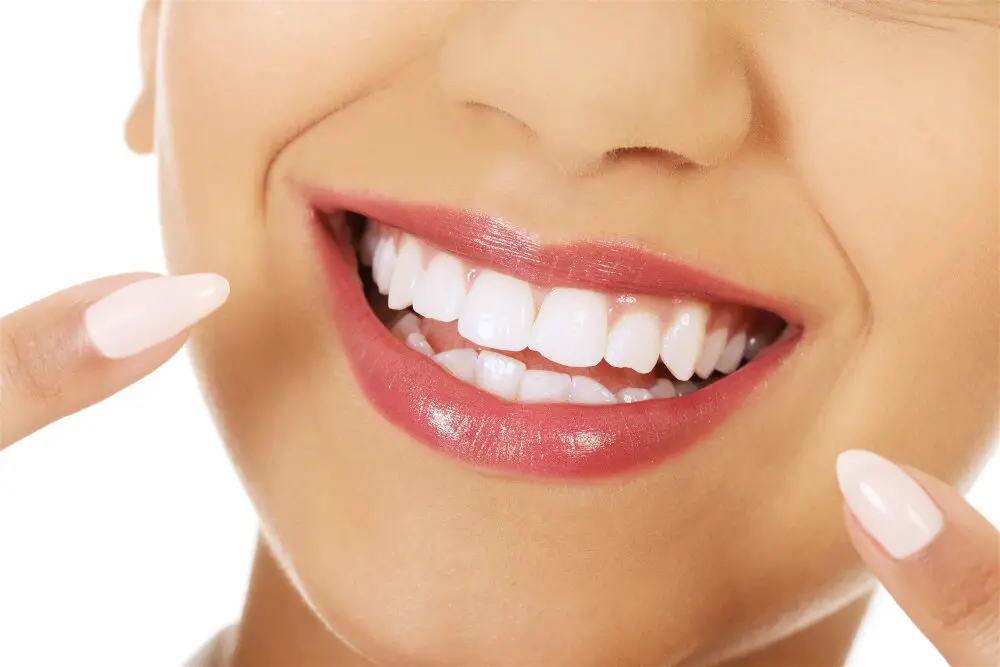
Bruxism or teeth grinding is a common condition that affects many people, with estimates suggesting that up to 20% of adults suffer from it. The condition is characterized by the grinding or clenching of teeth, often at night when the person is asleep. Bruxism can cause a range of symptoms, including headaches, jaw pain, and worn-down teeth. In severe cases, bruxism can lead to tooth loss, gum disease, and other dental problems. There are several causes of bruxism, including stress, anxiety, and sleep disorders. Treatment may involve the use of mouthguards or splints, relaxation techniques, and medication. One of the main reasons why bruxism can cause bottom teeth pain is due to the excessive force that is applied to the teeth during grinding or clenching. This force can cause the teeth to become worn down, which can lead to sensitivity and pain in the bottom teeth. In addition, bruxism can also cause damage to the temporomandibular joint (TMJ), which connects the jawbone to the skull. This can result in pain and discomfort in the jaw, which can radiate down to the bottom teeth. If left untreated, bruxism can cause significant damage to the teeth and gums, which can lead to more serious dental problems down the line. Therefore, it is important to seek treatment if you are experiencing any symptoms of bruxism, including bottom teeth pain.
Bruxism or teeth grinding is a condition in which a person clenches or grinds their teeth involuntarily, often during sleep. This can put excessive pressure on the teeth and cause pain, sensitivity, and even damage to the enamel. Bruxism can be caused by a variety of factors, including stress, anxiety, and sleep disorders. It can also be a side effect of certain medications or a symptom of an underlying medical condition. Treatment for bruxism may include the use of a mouthguard to protect the teeth, stress management techniques, and addressing any underlying medical or sleep disorders.
Pain in bottom teeth is a common dental problem that can be caused by various factors. One of the most common reasons for this type of pain is gum disease. When gum disease progresses, it can cause the gums to recede, exposing the roots of the teeth. These roots are not protected by enamel and can be sensitive to hot and cold temperatures, causing discomfort and pain. Another common cause of pain in bottom teeth is teeth grinding or clenching, which can wear down the enamel and expose the sensitive dentin layer underneath. This can cause sharp pain when eating or drinking, especially if the food or drink is acidic or sugary. Other factors that can contribute to pain in bottom teeth include tooth decay, cracked or broken teeth, and sinus infections that can cause pressure and pain in the teeth and gums.
Prevention and treatment options are crucial to alleviate the pain caused by bottom teeth problems. Regular dental check-ups can help in the early detection of dental issues and promote preventive measures to avoid further complications. Maintaining good oral hygiene like brushing and flossing twice a day can prevent the buildup of plaque and bacteria, which can lead to tooth decay and gum disease. Additionally, using a mouthguard during physical activities or sports can protect the teeth from injury. Treatment options include fillings, root canal therapy, or tooth extraction, depending on the severity of the issue. Pain relievers, antibiotics, and warm saltwater rinses can also provide temporary relief from pain and inflammation. Seeking professional dental care is essential to address bottom teeth pain and prevent future dental problems.
Bottom teeth can hurt for a variety of reasons, ranging from minor issues like gum irritation, to more serious problems like tooth decay or gum disease. Some common causes of bottom teeth pain include cavities or tooth decay, gum disease or gingivitis, impacted wisdom teeth, teeth grinding or clenching, and even trauma or injury to the jaw or teeth. Other factors, such as misaligned teeth or a poorly fitting dental appliance, can also contribute to discomfort in the lower teeth. It is important to seek the advice of a dental professional if you are experiencing persistent or severe pain in your bottom teeth, as early intervention can help prevent further damage and promote overall oral health.
Proper dental hygiene and regular checkups are crucial for maintaining healthy teeth and gums. Neglecting your dental health can lead to various dental issues, including tooth decay, gum disease, and even tooth loss. By practicing good oral hygiene habits, such as brushing twice a day and flossing daily, you can prevent these issues from occurring. Additionally, regular dental checkups can help detect and treat dental problems early on, preventing them from becoming more severe and costly to treat. Your dentist may also offer preventative treatments such as fluoride treatments and dental sealants to help protect your teeth from decay. Overall, maintaining good dental hygiene and attending regular checkups is essential for a healthy and happy smile.
Tooth pain can be a sign of a serious dental problem, and seeking professional help is crucial to prevent further damage to your teeth and gums. If you’re experiencing tooth pain, don’t ignore it or try to tough it out. Instead, make an appointment with your dentist as soon as possible. Your dentist can diagnose the cause of your tooth pain and recommend the best course of treatment to alleviate your discomfort. Remember, dental problems will not go away on their own, and delaying treatment can lead to more serious complications and more expensive dental procedures in the future. So, take care of your dental health and seek professional help if you’re experiencing tooth pain.
Conclusion
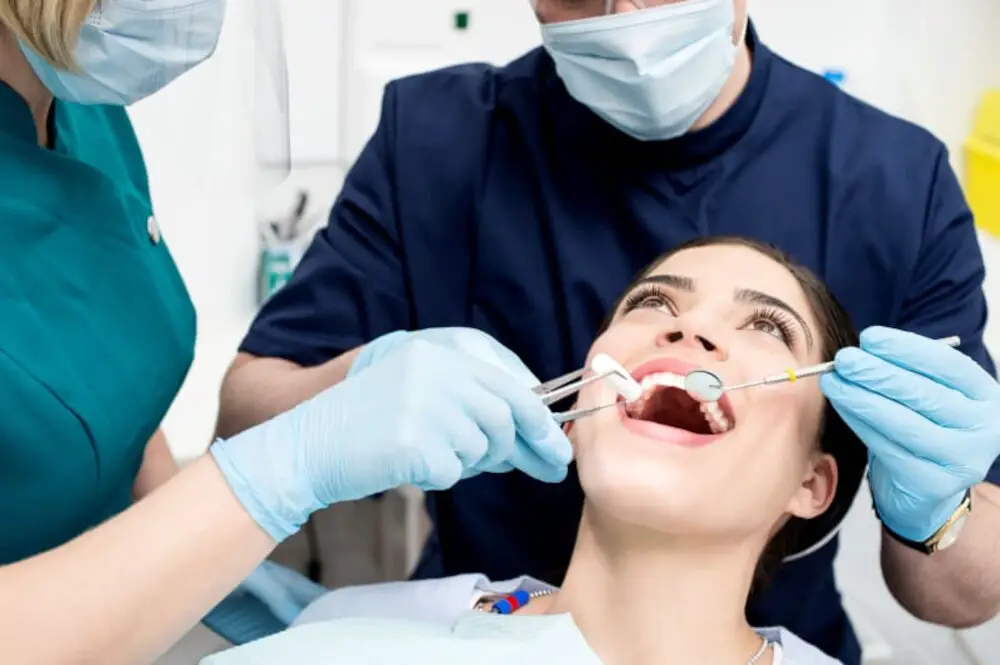
In conclusion, the pain in your bottom teeth can be caused by a variety of reasons, and it is essential to understand the underlying factors behind it. From cavities and gum disease to teeth grinding and misaligned teeth, the causes of the pain can vary significantly. However, with the help of dental experts and proper oral care, you can keep your teeth healthy and pain-free. Regular dental check-ups, good oral hygiene practices, and a healthy diet can go a long way in preventing dental problems and ensuring your oral health. So, if you’re experiencing bottom teeth pain, don’t hesitate to consult with a dental professional and take the necessary steps to maintain a healthy mouth.
